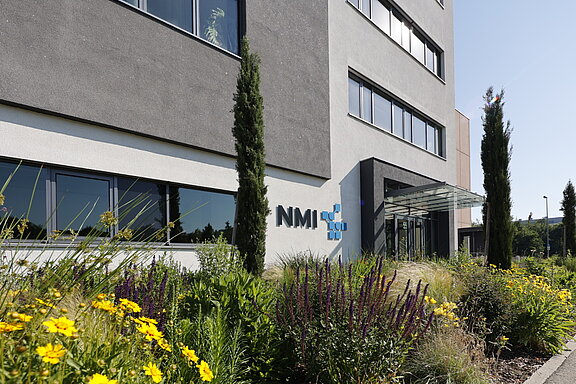
Compliance at the NMI
Compliance with good scientific practice
In order to achieve successful results, good scientific practice is required. This includes basic details such as design of experiments, documentation and authorship of publications. The German Research Foundation (DFG) provides a concise code on its website for Good Scientific Practice, to which the NMI is committed. Your group and department heads can provide further details specific to their scientific subject and their working group.
The ombudsman at the NMI is Prof. Hans-Peter Rodemann. (Contact: hans-peter.rodemann(at)nmi.de)
Our equality plan
The Equal Opportunity Planserves to achieve the goals formulated in the Federal Equal Opportunity Act (Bundesgleichstellunggesetz, BGleiG) and is an essential instrument of personnel planning, especially personnel development.
Sustainability at the NMI
NMI Sustainability Policy for Suppliers
The basis of actions at the NMI are the fundamental principles listed in the United Nations Global Compact. To promote the implementation of these principles, the NMI has established a sustainability policy that also calls on NMI suppliers of goods and services to uphold and respect human rights and laws. Details can be found here.
Sustainability topics in research
Sustainability plays an important role both scientifically and organizationally at the NMI. The researchers use their expertise from scientific and medical research to find ways to recycle diapers, which has been highly complicated up to now, to better understand and optimize the functioning of batteries, for resource-saving techniques for cleaning medical devices and for absorbing carbon dioxide in wall paints and varnishes.
Social sustainability
Research at the NMI covers a wide range of topics in the life sciences. These include clinical studies in the development of drugs and vaccines, various analytical methods and the development of new methods, disease models such as organ-on-chip systems and microtumor models, and medical technology. This work contributes to improving the quality of life and life expectancy of many people.
Responsible use of resources
In the work of the NMI, it is unavoidable that materials are used which are rare or require special treatment and disposal; likewise, increased consumption of resources is sometimes necessary. For this very reason, responsible, economical use and correct disposal are a matter of course for us. This is why there are clearly assigned responsibilities at the institute, especially for hazardous substances.
Economic sustainability
The NMI's mission and aspiration is to support companies. Our research always focuses on the applicability of developments, i.e., their marketability. We achieve this, for example, by supporting companies in their R&D activities, by granting companies licenses to use our patents, by offering services that smaller and younger companies in particular cannot provide themselves due to a lack of expertise or infrastructure, and by supporting spin-offs from our institute. In this way, we contribute to the innovative strength of Baden-Württemberg and Germany, strengthen companies, and thus help to secure and create new jobs.
Sustainable action in administration
The NMI commits its suppliers to social and ecological sustainability. This includes environmentally friendly products as well as compliance with human rights, the prohibition of child labor, etc. In day-to-day work at the NMI, resource-conserving actions, for example with regard to water and paper consumption or waste separation, are a matter of course. The institute supports employees who want to cycle to work by offering them the opportunity to lease a “job bike”. The flowering meadow with the wild bee nesting aid in front of the institute building is also a symbol of the conscious focus on sustainability at the NMI, both on a large and small scale.





